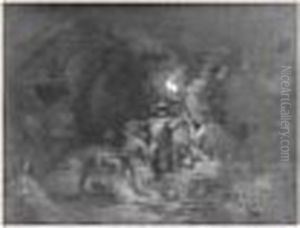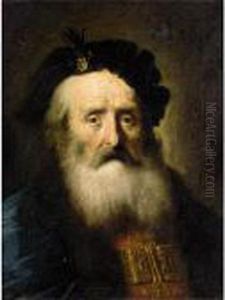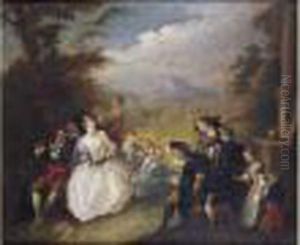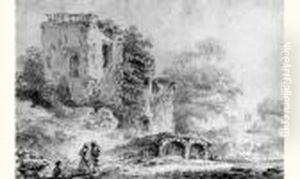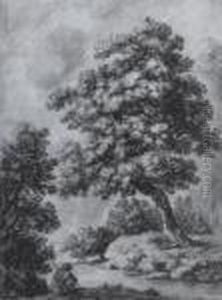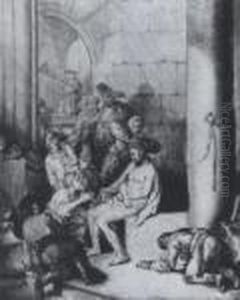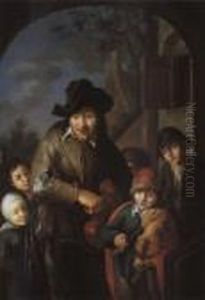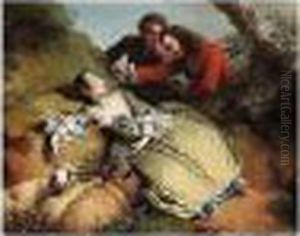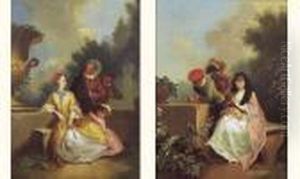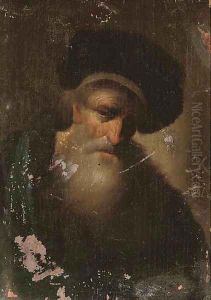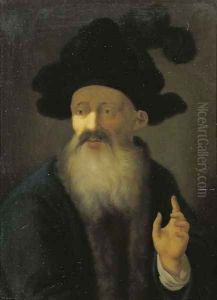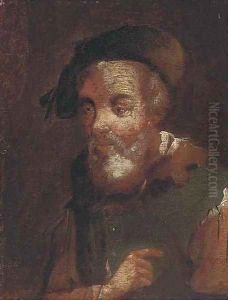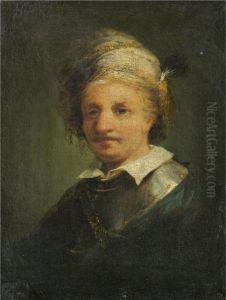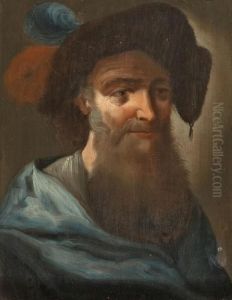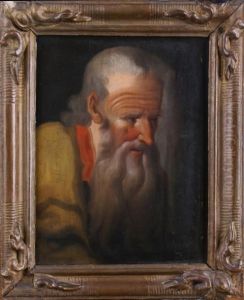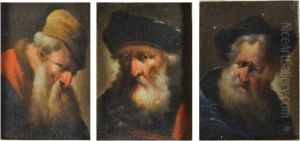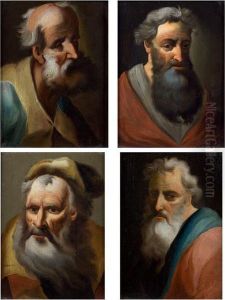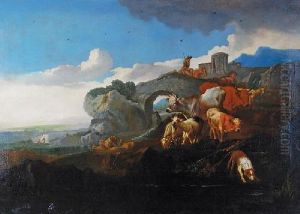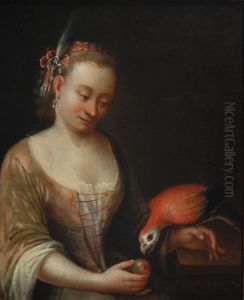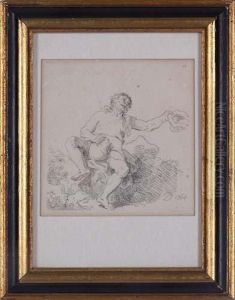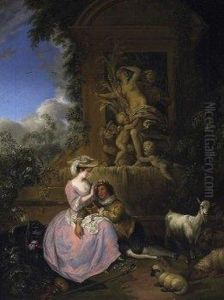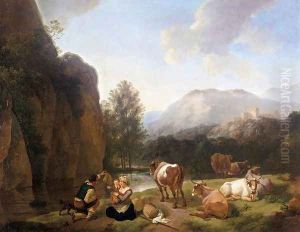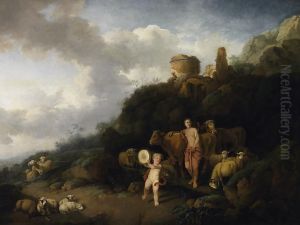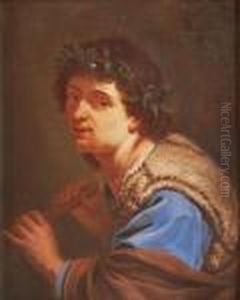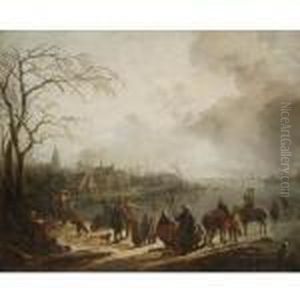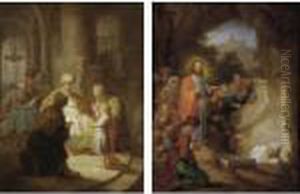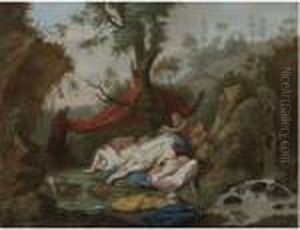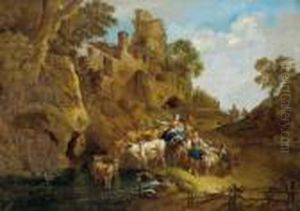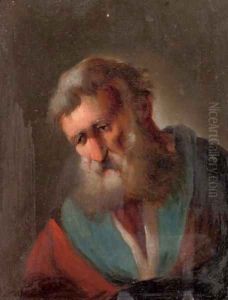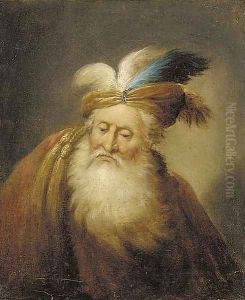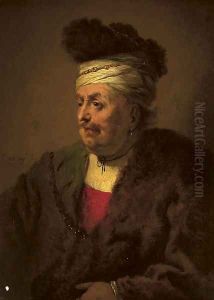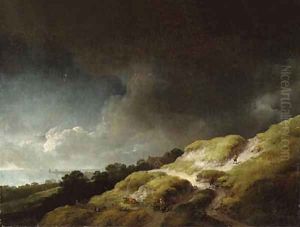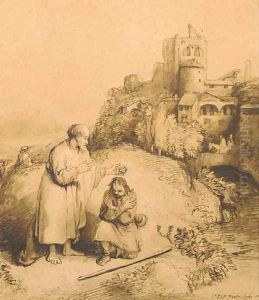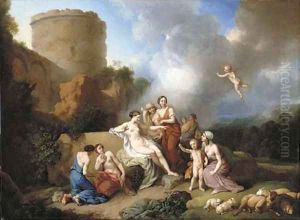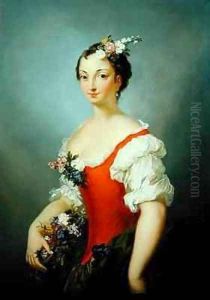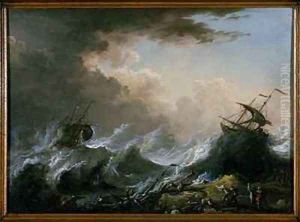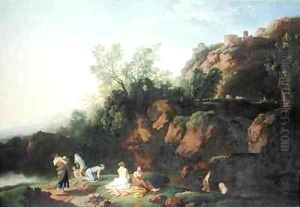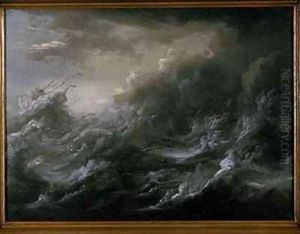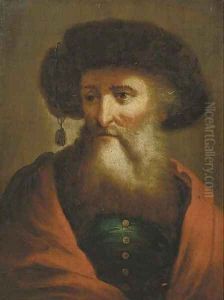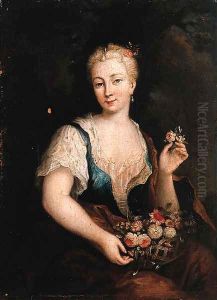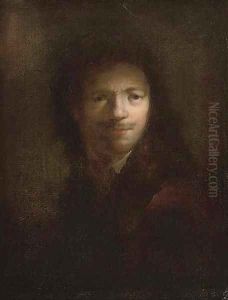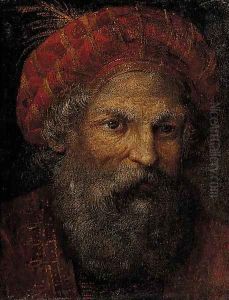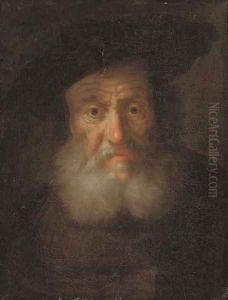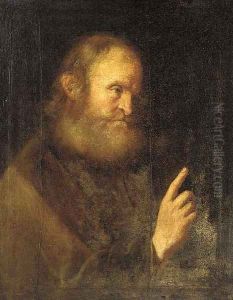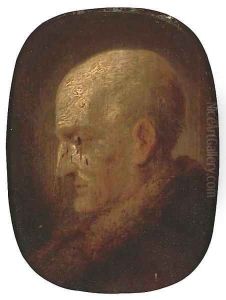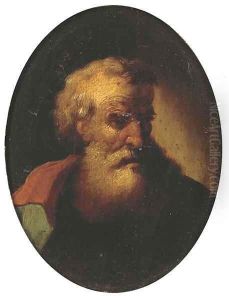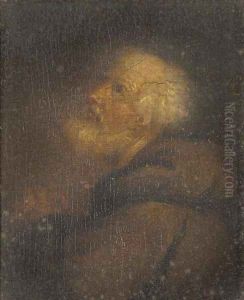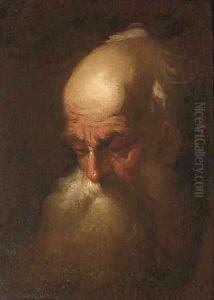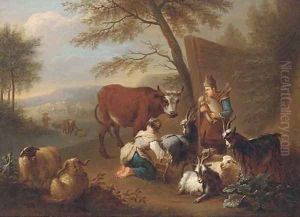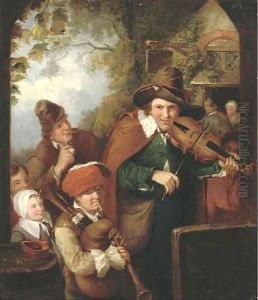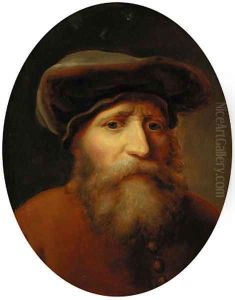Christian Wilhelm Ernst Dietrich Paintings
Christian Wilhelm Ernst Dietrich, also known as Dietricy, was a notable German painter and art administrator in the 18th century. Born on October 30, 1712, in Weimar, Germany, Dietrich showed an early inclination towards the arts, which was nurtured under the guidance of his father, Johann Georg Dietrich, a court painter and decorator. Dietrich's talent and versatility in painting were evident from a young age, as he adeptly mastered various styles and subjects, including landscapes, historical scenes, and portraiture. Dietrich's education and artistic development took a significant turn when he moved to Dresden in 1728. There, he studied under the renowned painter Alexander Thiele, who greatly influenced Dietrich's early works. His ability to mimic the styles of other artists, both contemporary and from the Renaissance and Baroque periods, led to a highly eclectic body of work that was both admired and criticized for its lack of a singular style. Nonetheless, Dietrich's skill in emulation also made him a popular court artist, as he could cater to the diverse tastes of his patrons. In 1741, Dietrich was appointed court painter to Frederick Augustus II of Saxony, a role that significantly boosted his career. He was later promoted to the director of the Dresden Academy of Fine Arts, where he played a crucial role in shaping the institution's direction and curriculum. Dietrich's contributions to the art world were not limited to his paintings; he was also instrumental in organizing and expanding the art collections of the Dresden Gallery, thereby enriching the cultural heritage of Saxony. Throughout his life, Dietrich traveled extensively across Europe, drawing inspiration from different regions and artists. His works, which include over 2,000 paintings, drawings, and etchings, reflect a wide range of influences, from Italian and Dutch masters to contemporary German artists. Despite the diversity in his oeuvre, Dietrich's art is characterized by its emotional depth, attention to detail, and often, a subtle sense of humor. Dietrich passed away on April 24, 1774, in Dresden. His legacy lives on through his vast and varied body of work, which continues to be studied and admired for its technical skill and historical significance. Dietrich remains a pivotal figure in German art history, celebrated for his ability to bridge different artistic traditions and eras through his unique and eclectic approach.
